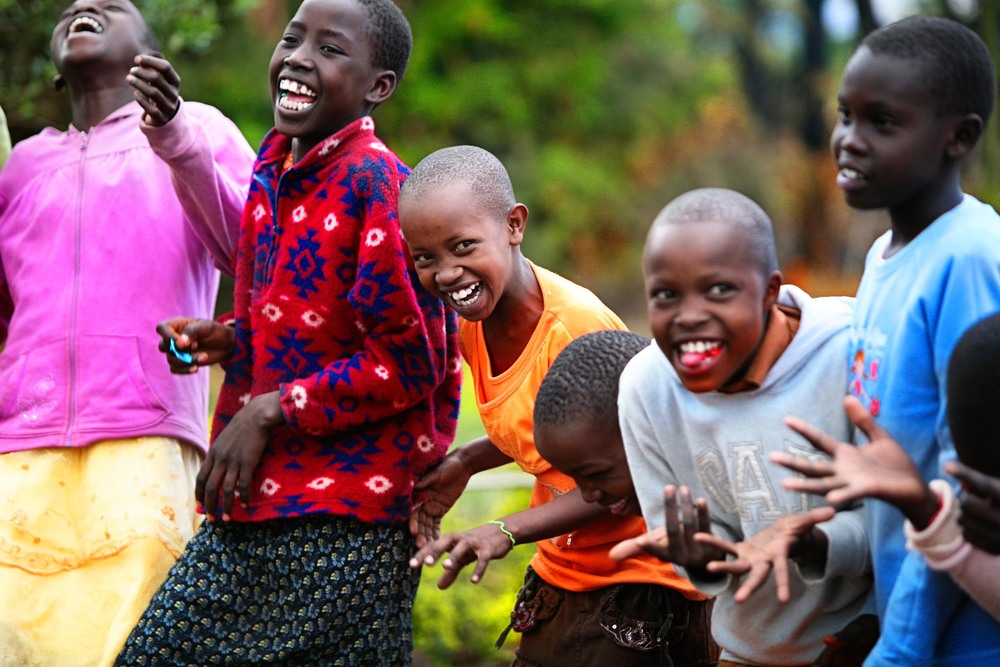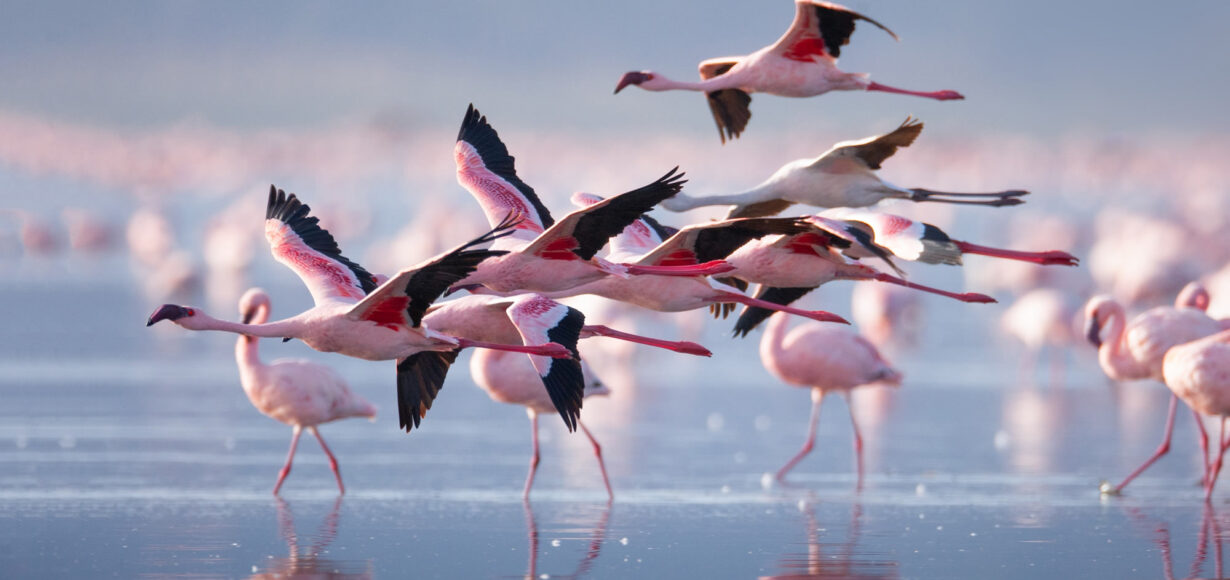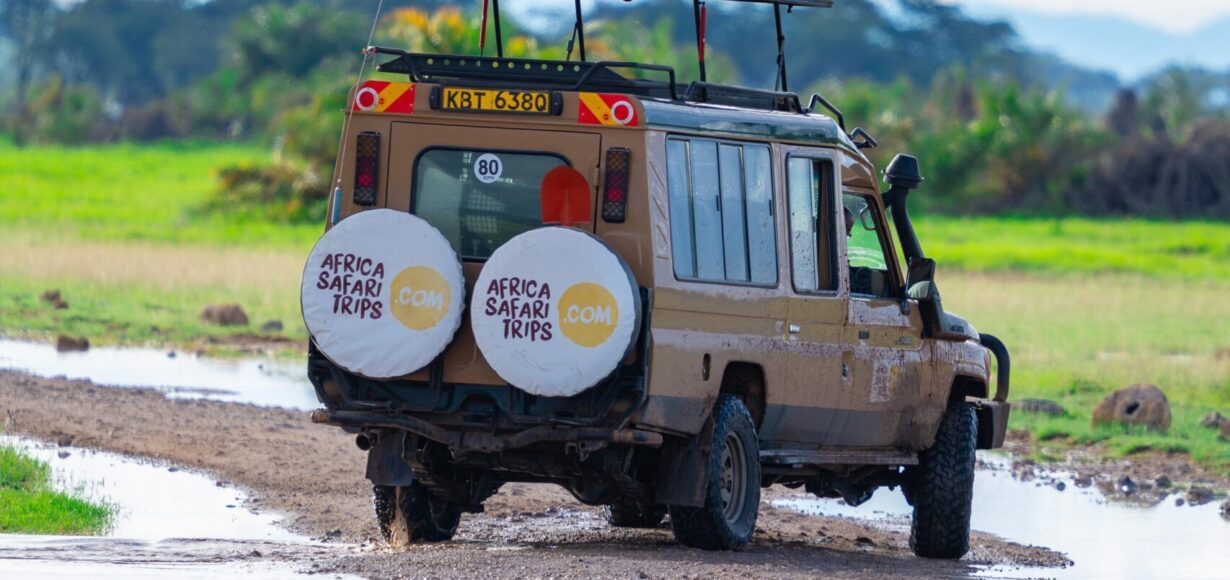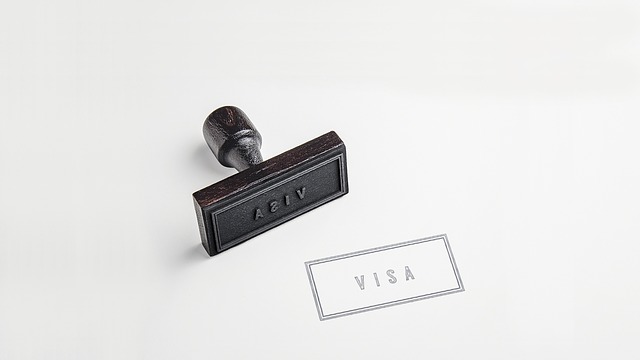
5 January 2023
Every now and then clients book a safari, and then indicate they would like to bring something for local people. They realise Kenyan people sometimes live under difficult circumstances and feel the urge to somehow help to alleviate their struggles. Their question then is – what to bring?
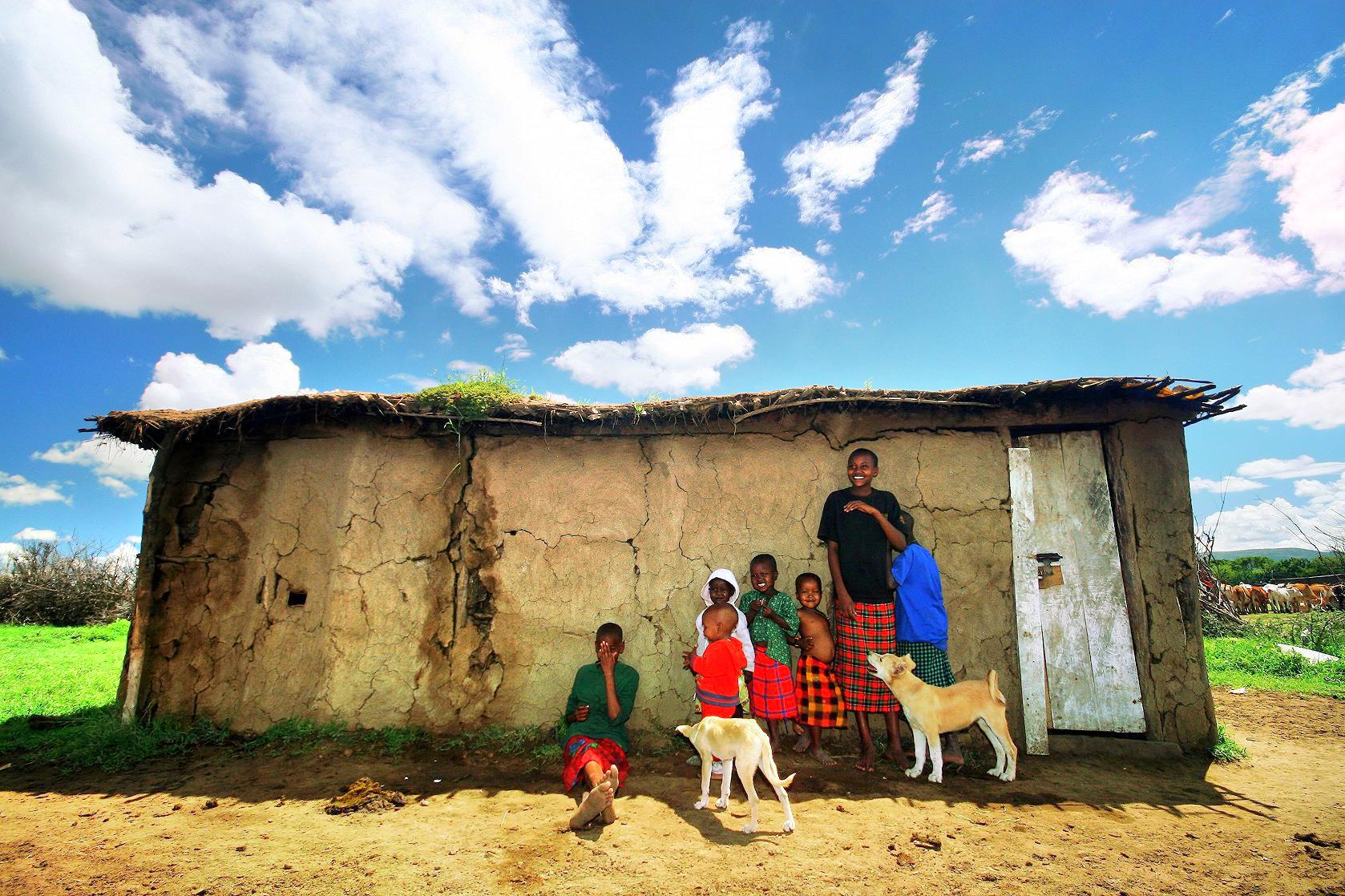
First let us make clear that Kenyan people many times indeed live under tough circumstances. Poverty, and lack of electricity, clean drinking water, proper health care and good schools make that life can be tough in this country on the equator. And of course, these are no easy things to solve. The most you can do as a tourist coming for safari, is hope to bring a little light in the everyday life of a few people. Right?
Then again, you don’t want to be taking stuff on a plane while you might also be able to buy it here. Or while there are many (small) NGOs who do a good job in supporting people. After all, in general they better know what’s needed than people who come for the first time.
Two questions
We usually advise people to ponder on two questions before coming with a suitcase full of gifts. For one, do you want to be in touch with local people, or would a donation to a trusted, local NGO also suit you? And if you choose to hand out your own gifts: Do you prefer to bring those gifts from home, or would you like to buy them in Kenya?
There are many different answers to the questions above, and not one of them is right. Some of our team members are adamant that it’s better to just donate to trusted NGOs. These NGOs know what people really need and how to best get it to them. But as our guide James points out, there are also benefits to bringing gifts and handing them out: ‘Especially when you hand those out in villages around the national parks, it creates good will with the local people. They feel the benefit of living next to a reserve, and it allows them to feel the impact of tourism directly.’
Because the sad reality is that many times safari cars just speed by. They carry mostly white people in fancy clothes with expensive gear, who never cast one look at the people living next to the road. It’s easy to feel resentment if you are that person living in a mud house, not knowing what to feed your children that night. ‘But if people take time to stop, share their gifts and actually talk to people living here, it becomes much harder to resent these tourists. Which in return of course supports the tourism industry, which in the end helps preserve the animals in the national parks.’
Local initiatives
That being said, there are many small, local NGOs that work with issues that you might care for. Below we added a list of these, so you can make a choice between some trusted NGOs that we know of. Many of these really manage to make a difference on the ground, by for example supporting local schools, local health care facilities or by helping to pay tuition fees for private schools. But donating to an NGO might feel different from actually bringing something to hand out. Handing out gifts allows you to connect with the people and get a feel for Kenyan culture.
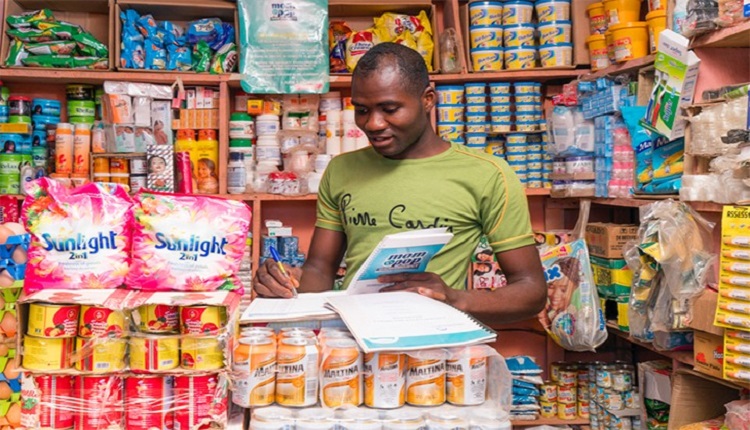
Many clients then wonder if it would be wiser to buy things after arriving in the country – and thus support the local economy. Our guide Anthony advises against that: ‘Gifts from Europe or America usually are more varied or of better quality. Recipients feel very honoured to receive such gifts. Bringing your gifts also saves on time that would be spent sourcing those gifts here in Kenya.’
To know what to bring, you can check the Pack for a Purpose initiative, that connects local organisations and hotels with tourists coming to Kenya. On their website, you find a list of organisations and hotels in Kenya, with an overview of what they support and what is still needed. Some of these hotels might be on your itinerary, making it easy for you to support their good cause. Additionally, below you find a list of gifts that we feel are always appreciated:
School supplies
In general, kids lack supplies in schools. Notebooks, pencils, pens, rubbers, rulers, sharpeners are all in demand and fast to lose. Besides, some kids hardly ever see coloured pencils or colouring books, crayons, clay or paint. These would not be used in schools (!) but could benefit community centres or small NGOs working with kids.
Toys
Toys are always popular and easy to take. Balls are always in demand. Footballs for boys and/or bigger kids and smaller (tennis) balls for a game called reddis which is very popular among girls. Jumping ropes are also popular in villages, as well as the above-mentioned papers, colours and crayons. We do not recommend balloons, especially in communities closer to the national parks, since they leave plastic waste that animals might choke on.
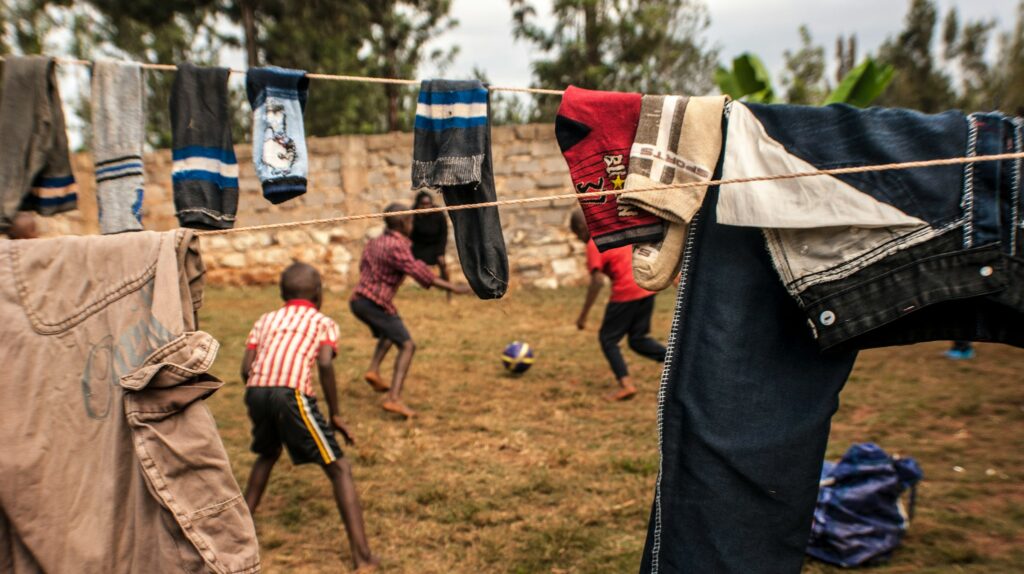
Practical gifts
Think solar lights, (smart/ simple) phones and (solar-powered) Bluetooth radios or speakers. Even though these are much needed and very practical gifts, they can be hard to distribute since everyone wants them. Be sure to talk to your guide before handing out these, so he can make sure they get distributed evenly and land in the hands of people who really need them.
Clothes
In general, it’s fairly easy to get cheap clothes in Kenya (second- or rather tenth hand) and they hardly ever last long. Dust, sand, dirty water and lack of soap and water make that clothes wear down soon. Per rule, most kids hardly ever wear clean clothes without holes. It would be impossible to keep them clean. Only on special occasions, people get their fancy dresses out (of which they usually buy one set a year) and try their best to look nice. It’s good to keep this in mind when bringing clothes. These will always make people happy, but they might only wear them on special occasions… Or wear them down within a few weeks. That being said: school shoes (black) and backpacks are always in demand.
Conclusion
All in all, we prefer people donating to small local NGOs, like the ones listed below. They really do a good job in making a difference in the day-to-day life of people who need it. Not just by giving them things, but also by increasing their skills and capacities. On the other hand, gifts go a long way in creating good will and bringing joy in day-to-day lives. So if you do decide to bring something, then please check the Pack for a Purpose website first, just in case one of your hotels is on there. And if you do hand them out yourself, make sure to properly communicate with your guide and check with customs what and how much you can bring. Our guides usually have a decent network and know where gifts are needed and appreciated. And they are always happy to help!
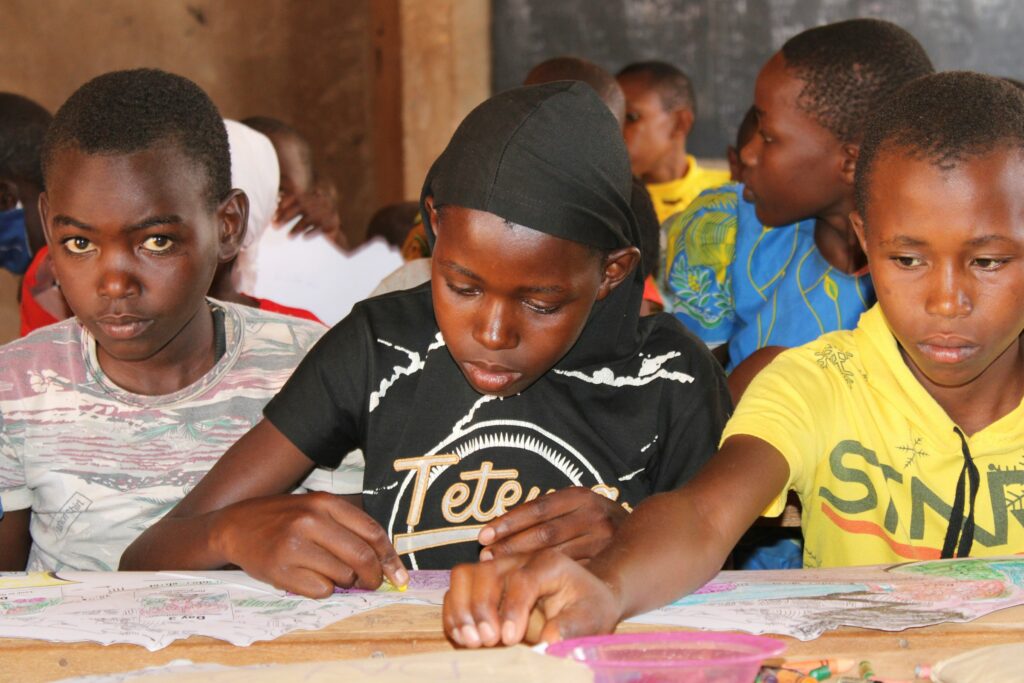
And oh, one last thing. Maybe you decide not to bring anything, but end up feeling you really want to share something with local people. Then by all means buy some fruits! Fruits are available everywhere and always appreciated.
Small NGOs to support:
- Volunteers Foundation: they are in use of school items as listed above, but also clothes and school uniforms.
- The Smiley Hand Foundation
You have questions or would like to bring your gifts to Africa yourself?
Then message us, and together we’ll put this plan into motion!
